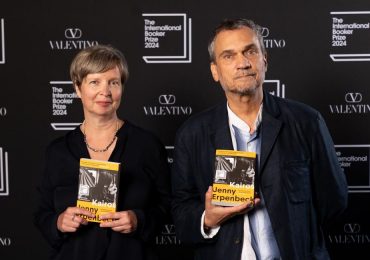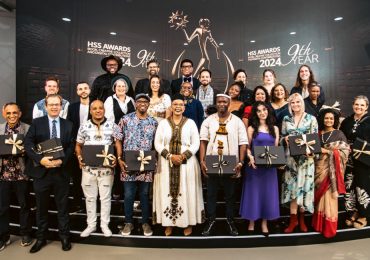‘A Mouth Full of Salt’ by Sudanese writer Reem Gaafar has won the 2023 Island Prize for a Debut Novel from Africa.
Judges described the book as ‘stylistically simple, insightful and elegant; sharing truths like all the best fiction, it is compelling, has a profound sense of place, and shows brilliance in the ways the destinies weave together.’

The prize runners-up are Andile MaShandu Cele of South Africa, for ‘Braids and Migraines’, and Jesudubami Jemima Aganaba of Nigeria, for ‘Bobo Hamham’.
This literary prize, founded by Karen Jennings, author of the Booker Prize-longlisted novel An Island and now in its second year, is open to debut African novelists, curated with the primary aim of helping African writers reach a wider audience and break into the United Kingdom publishing scene.
The prize is open to entries from across any and all genres, and comes with prize money of £500 for first place, and £200 for the runners up. All placing novels will be considered for publication, with their authors being introduced to an agent.
This year’s prize judges were Jennings (author and founder of The Island Prize), Rachel Edwards (author) and Hamza Koudri (runner up for the 2022 Island Prize).
More about the prize winner and runners-up:
‘A Mouth Full of Salt’ by Reem Gaafar
A small village in the North of Sudan wakes up one morning in the late nineteen-seventies to the news of a drowned boy. While searching for him a strange woman appears, and with her appearance a series of strange and tragic events occur: animals die of a mysterious illness, the date tree fields catch fire and burn to the ground, and a young girl decides she is leaving the village to go to medical school in the capital Khartoum—something unheard of in that area and that time. While these events all have perfectly logical explanations, the villagers believe they are a work of evil and their thoughts and anger turn to this woman who they believe is a witch.
The three women in this story are trapped in a social system with a very well-defined gender and racial hierarchy, but which is facing disruption by changing times. In their obstinate belief in their societal norms, the villagers blame this change on an obscure evil that can only be produced by an outsider, rather than confront their own bigotry.
~~~
‘Braids and Migraines’ by Andile MaShandu Cele
A story about injustice and education; a kind of fable about the reality of being a young black person in post-apartheid South Africa.
~~~
‘Bobo Hamham’ by Jesudubami Jemima Aganaba
A story told by three children. The witness to domestic violence, rural life, poverty and religious fanatism; the rich, urban, classy kid in the cold, lifeless family; lastly, the indoctrinated, bipolar child-terrorist in a forest somewhere.






One thought on “[The JRB Daily] Sudanese writer Reem Gaafar wins 2023 Island Prize for ‘compelling, profound and brilliant’ debut novel A Mouth Full of Salt”